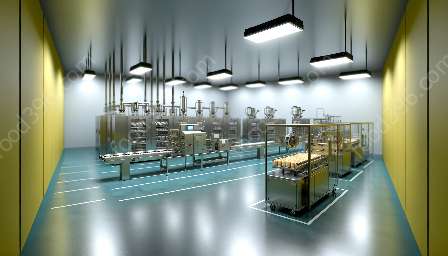Quality control in food processing is crucial for ensuring the safety, quality, and consistency of food products. It plays a critical role in food preservation and processing, impacting the overall quality and safety of the food and drink industry.
The Importance of Quality Control
Quality control in food processing is essential to prevent contamination, ensure proper labeling, and maintain consistency in taste, texture, and appearance. It encompasses various measures to guarantee that food products meet specific quality standards and regulatory requirements.
Key Components of Quality Control
Quality control in food processing involves several key components, including:
- Raw Material Inspection: Thorough examination of incoming raw materials to ensure they meet quality and safety standards.
- Process Monitoring: Continuous monitoring of the production process to identify any deviations that may affect product quality.
- Product Testing: Conducting tests for microbial contamination, chemical residues, and physical properties to ensure product safety and compliance.
- Packaging and Labeling Inspection: Verifying the accuracy of packaging and labeling to prevent misleading information and ensure consumer safety.
- Storage and Distribution Control: Implementing proper storage and transportation conditions to prevent spoilage and maintain product integrity.
Role in Food Preservation and Processing
Quality control is closely linked to food preservation and processing, as it ensures that preservation methods are effective in maintaining the safety and quality of food products. By monitoring and controlling factors such as temperature, moisture, and pH levels, quality control helps prevent spoilage and contamination during processing and preservation.
Impact on the Food and Drink Industry
Quality control measures have a significant impact on the food and drink industry. They build consumer trust by assuring the safety and reliability of food products, leading to customer satisfaction and loyalty. Additionally, adherence to quality control standards helps food and drink businesses comply with regulations, avoid costly recalls, and maintain a positive brand reputation.
Conclusion
Quality control in food processing is an integral part of ensuring the safety and consistency of food products. Its role in food preservation and processing is vital, as it directly impacts the overall quality and safety of the food and drink industry. By implementing stringent quality control measures, businesses can uphold the integrity of their products and meet consumer expectations.


















